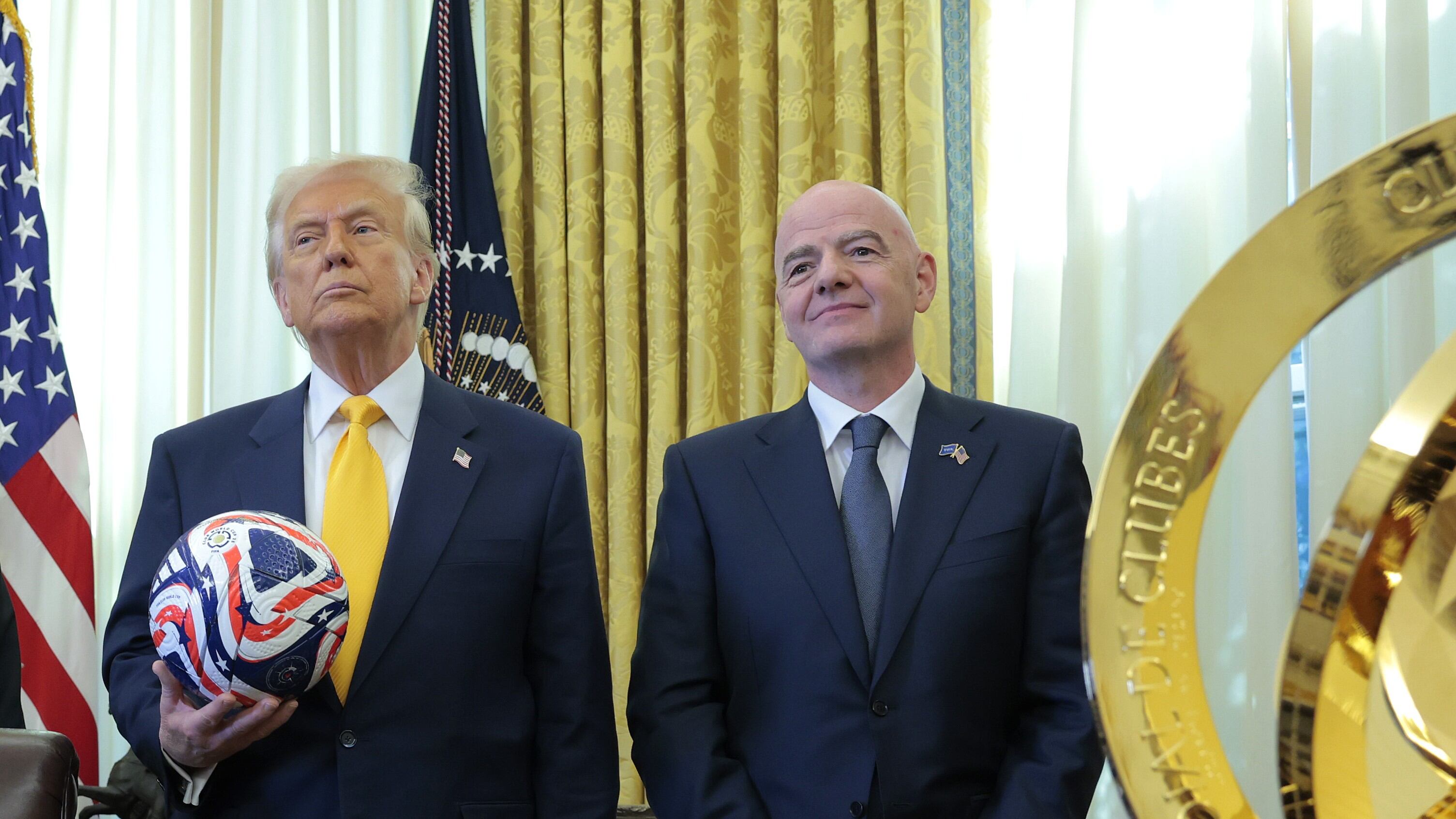WASHINGTON (AP) - Seven years ago, when a joint bid from the United States, Canada, and Mexico was awarded the hosting rights for the FIFA World Cup 2026, the divisions created by tariffs - yes, even back then - and a proposal for a border wall went unnoticed due to the long-standing political and economic alliances among the neighbors.
PUBLICIDAD
Carlos Cordeiro, who was then president of the United States Soccer Federation, stated that “the unity of the three nations” was the predominant theme. He called it “a powerful message.”
PUBLICIDAD
Are there any issues with the organization of the 2026 FIFA World Cup?
Well, here we are now, with the maximum football event in North America in about 15 months, and President Donald Trump back in office, inciting trade wars among neighbors, not to mention globally, by imposing tariffs that come, then go, then return, with more promises, including what the Republican leader calls “reciprocal tariffs” starting on Wednesday, April 2.
It is difficult to know exactly how the current geopolitical fissures, which become even more evident every time Trump or those in his administration provocatively talk about making Canada “the 51st state,” could affect the World Cup, its organization and coordination, fans’ travel plans, and more.
“I think it will make it more exciting,” was Trump’s opinion during an appearance in the Oval Office with FIFA president Gianni Infantino last month. “Tension is a good thing.”
Will the fans come to the 2026 World Cup and the 2028 Olympics?
Since the United States is also preparing to host fans for the FIFA Club World Cup in June, the Ryder Cup in September, and the Los Angeles Olympics in 2028, the question becomes: Does the world want to come to the United States?
And, considering Trump’s border and visa policies, will the world be able to do it?
Alan Rothenberg, who led the organizing committee of the 1994 World Cup and successfully oversaw the bid to host the 1999 Women’s World Cup as the president of the United States Soccer Federation at the time, believes that the answers to those questions are “yes.”
When pointing out concerns about the last two World Cups, in Russia in 2018 and Qatar in 2022, it was mentioned that they still attracted total attendances of over 3 million each.
“People love the United States all over the world; frankly, we wouldn’t have the immigration issue we are facing if it weren’t so, so much of this is government to government,” Rothenberg said. “A passionate soccer fan won’t be stopped by that.”
Do not believe that one of the host nations will withdraw from the World Cup, or that other countries may boycott, as happened in the Summer Olympics of 1976, 1980, and 1984.
“Furthermore, from an organizational point of view, if Canada or Mexico were to withdraw from the World Cup,” he said, “the United States would take care of the matches in the blink of an eye.”
FIFA, the governing body of soccer, did not respond to requests for comments from The Associated Press, but Infantino has never hidden his admiration for Trump, which he often demonstrates through social media. They have met at least five times since the US elections in November.
Will Trump’s tariffs and other policies affect the World Cup?
Gabriela Cuevas, who represents the Mexican government before FIFA, stated that she considers tariffs and the soccer event to be “separate issues,” and added that she believes that “the World Cup could be a way to start a conversation.”
Observers tend to agree, saying that logistics, such as security cooperation or the transportation of equipment from city to city or country to country, should not be hindered when it comes to the World Cup, scheduled to take place in 16 cities across the United States, Canada, and Mexico from June 11 to July 19, 2026.
However, borders could become a problem.
“The main thing that FIFA needs to move for this event is not car parts, wheat, or electricity. It’s people. That’s your real concern,” said Victor Matheson, an economics professor at the College of the Holy Cross in Worcester, Massachusetts. “What used to be fairly reasonable border crossings could become much more challenging, simply because both sides are increasing their level of inspections and the United States, in particular, is reducing government services that allow people to move effectively between countries,” he added.
Regarding fans, Germán Camacho Pacheco, a 29-year-old Mexican entrepreneur, said that “soccer is religion” in his country, so when it comes to the World Cup, “I don’t think tariffs matter to them.”
New IOC President trusts Trump
Last week, when Kirsty Coventry was elected president of the International Olympic Committee, becoming the first woman in that position, she was asked how she would work with Trump and what she would tell athletes about traveling to the United States for the upcoming Games.
“I have been dealing with, let’s say, difficult men in high positions since I was 20 years old,” Coventry said with a smile, “and above all, what I have learned is that communication will be key. That is something that will happen from the beginning. And my firm belief is that President Trump is a great sports lover. He will want these Games to be meaningful. He will want them to be a success.”
Referring to concerns about whether the administration could deny visas to some athletes, he added: “We will not deviate from our values... of solidarity to ensure that every athlete who qualifies for the Olympic Games has the opportunity to attend the Olympic Games and be safe during the Olympic Games.”
Unlike the good relationship with Infantino, Trump had a tense relationship with the former president of the IOC, Thomas Bach, which also represents a new challenge for Kirsty Coventry.
